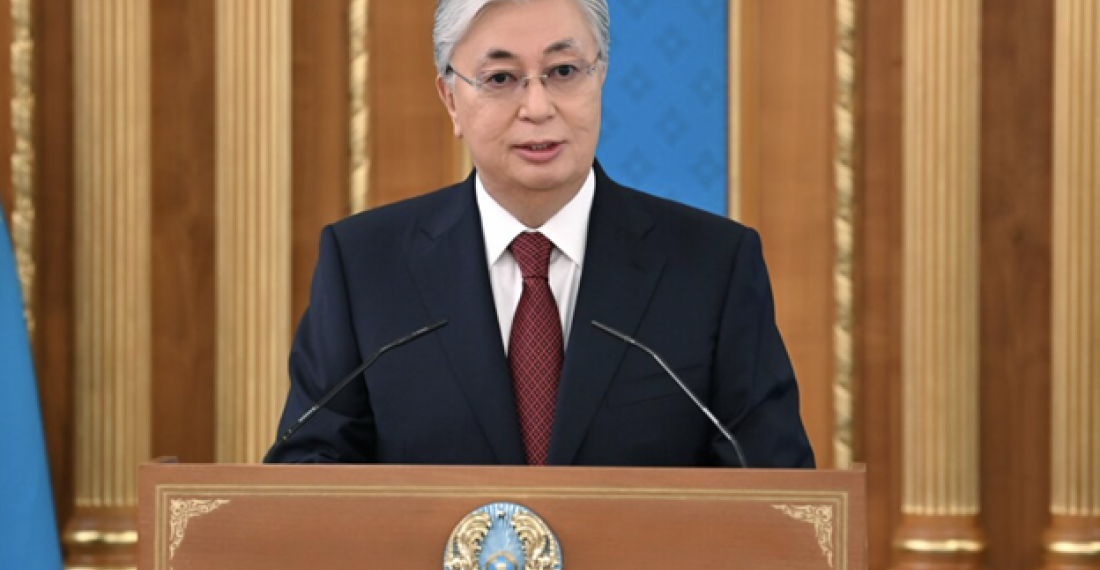President Kassym-Jomart Tokayev of Kazakhstan announced Thursday (5 May) that on 5 June, a constitutional referendum will take place. The referendum will ask voters to approve an overhauled constitution that the government say will launch Kazakhstan’s Second Republic.
Kazakhstan is still reeling from the January unrest that led to numerous deaths and substantial numbers of protestors in jail. To quell any possibility of more riots and protests, President Tokayev stated on 29 April that the government would devise a new constitution that would bring about a “new format of interaction between the state and society.” The referendum itself, the government says, is an example of that commitment. “Changing the constitution by means of a popular vote will be a clear demonstration of the will of the people. The referendum will allow every citizen to take a direct part in deciding the fate of the country.”
The constitution of Kazakhstan, adopted in 1995, had seen light modifications and tinkering until 2017 when changes were made to make the President more accountable to the legislature. Nevertheless, the then President, Nursultan Nazarbayev, retained veto power over new laws.
Under the new constitution, proposals focus on reducing the power of the President. The President will not be allowed to be a member of a political party and their family members can not become “political civil servants”. Furthermore, the number of senators the President chooses will be reduced from 15 to 10. Currently, the Senate has 49 members.
Proposals also look to the Majlis, the lower house of Parliament. Its 98 members will be elected through a mixed electoral system so that only a few will be elected through a proportional representation system, which is currently the case for all members.
Those who work as judges, or for the Central Electoral Commission, the state auditing committee, the military, or law enforcement agencies, will not be permitted to be members of any political party. Moreover, citizens will now be allowed to directly file petitions to a proposed Constitutional Court to test any new legislation’s compliance with the fundamental law of the country.
In what is seen as a reversal, Nazarbayev will lose his status in the constitution with certain privileges that were awarded being removed. He, nor his family, will no longer be immune from prosecution. Criticizing the former President will also no longer be an offence.
However, the changes are seen by some as not being far-reaching enough. Direct local elections will still not exist, the President will retain the power to choose local governors. The Secretary of State, Yerlan Karin, was criticized for elitism, writing on Telegram on 27 April that “It is possible that it will be very complicated for the non-specialist to navigate through such a large number of amendments.”
Despite criticism, the reforms are supported by local think tanks. Director of the Nur-Sultan-based Eurasian Integration Institute, Urazgali Selteyev, said “We will get an influential parliament and a generally balanced system of checks and balances between government institutions that will become more effective.”
To modernize Kazakhstan, Tokayev will need to implement deep-rooted reforms to institute substantial reforms, in practice and not merely in a declaratory fashion as was the habit with his predecessor. The constitutional changes are seen as a good start, but can certainly not be the end of the story if the promise of a new Kazakhstan is to be delivered.






